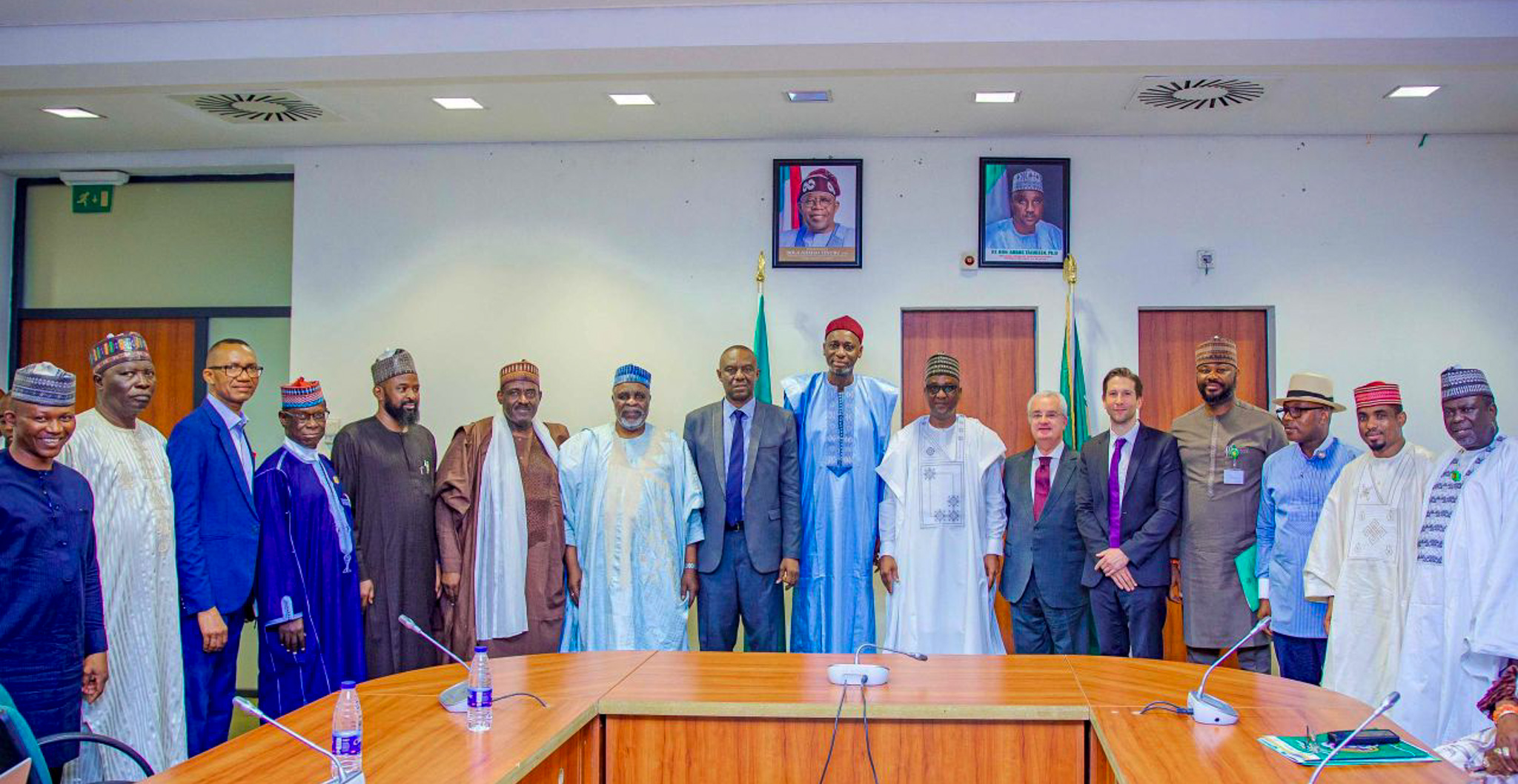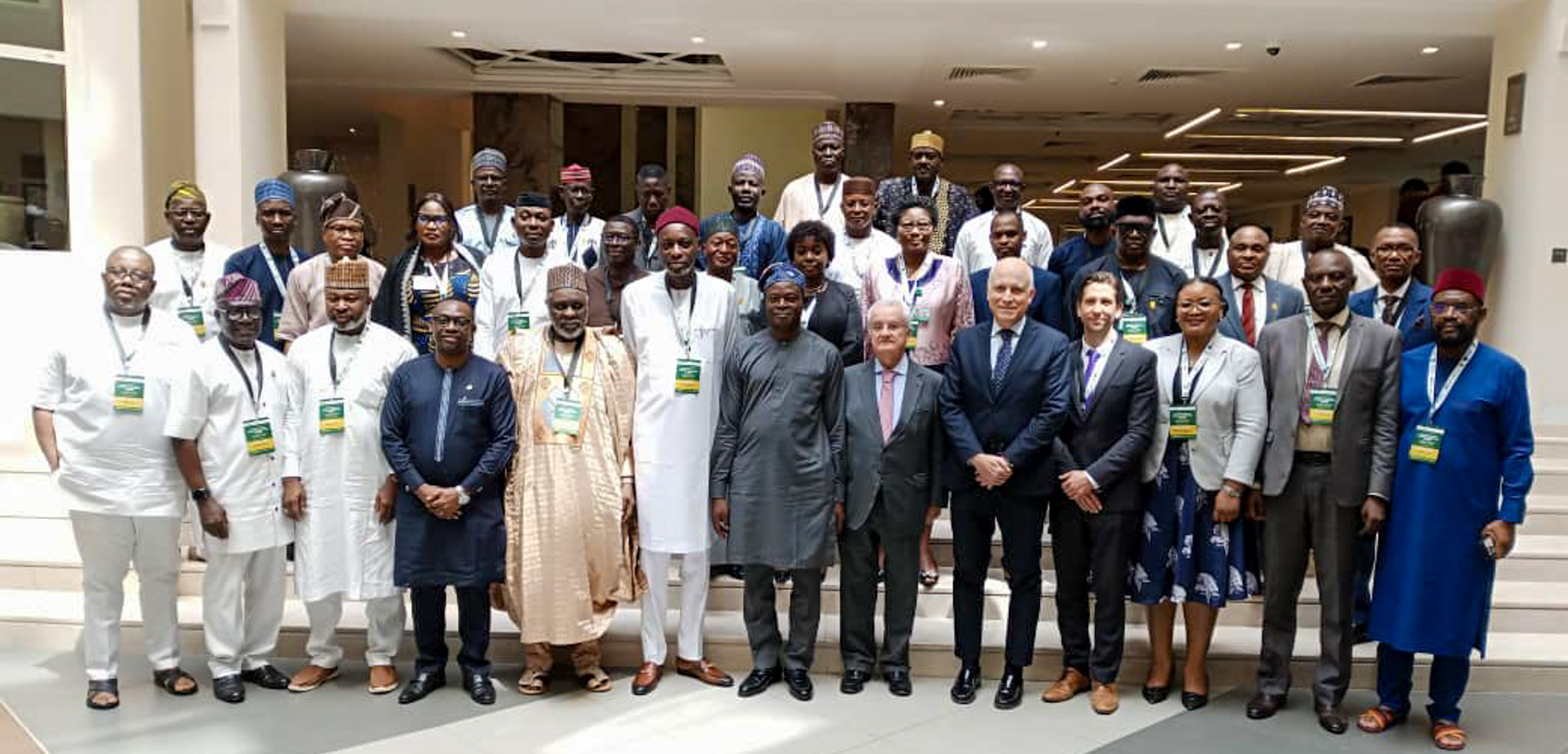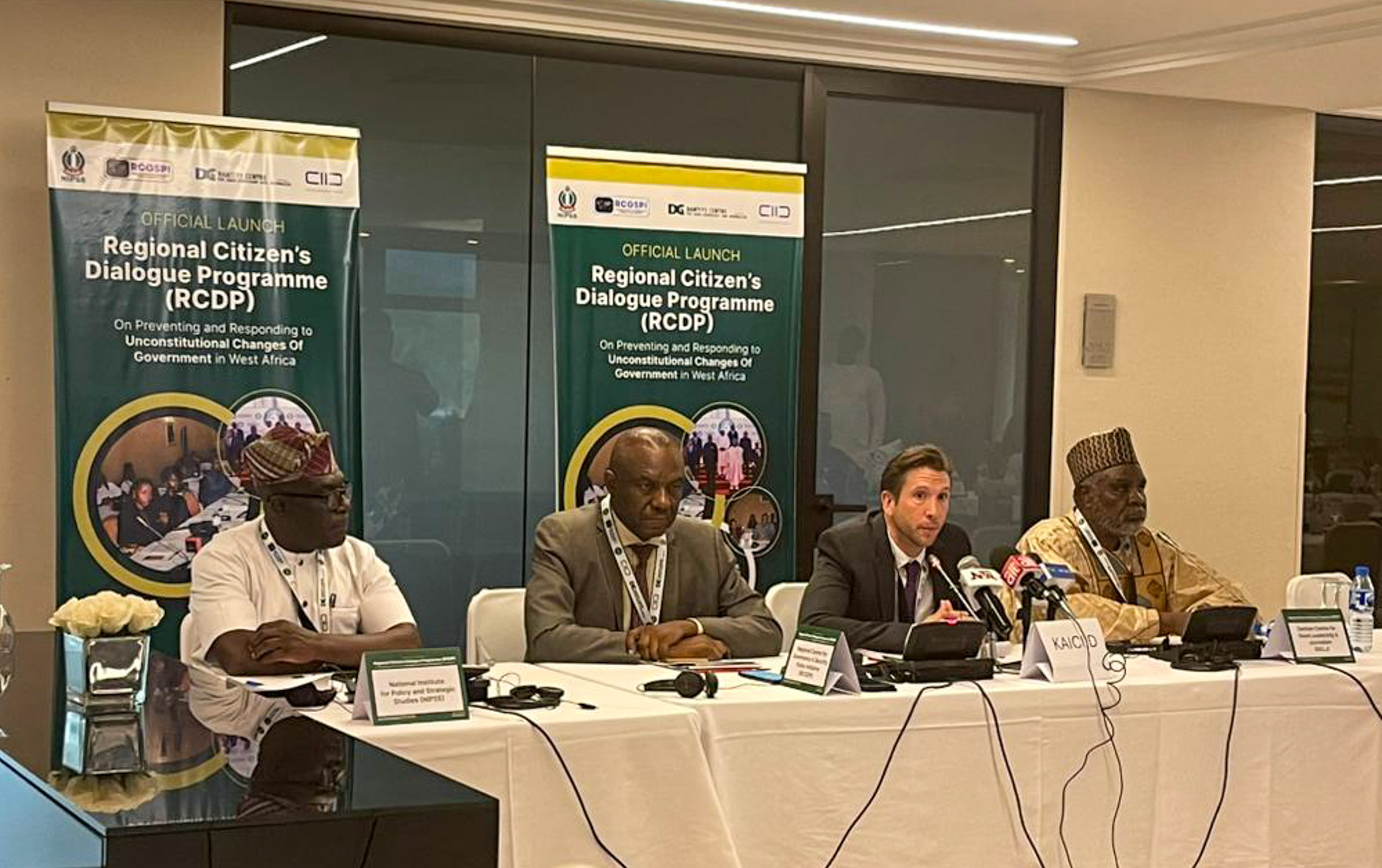
In the heart of Abuja, Nigeria, on the 27th and 28th of February 2024, a groundbreaking event took place that marked a significant stride towards safeguarding democracy and human rights in West Africa. The Regional Citizen’s Dialogue Programme (RCDP), an initiative aimed at preventing and responding to unconstitutional changes of government (UCG) in the region, officially commenced. Spearheaded by the National Institute for Policy and Strategic Studies (NIPSS) and supported by the International Dialogue Centre – KAICIID as a core partner, this initiative brought together a diverse coalition of think tanks, civil society organizations (CSOs), faith-based representatives and stakeholders from across ECOWAS member states, united by a common goal: to fortify the foundations of democracy and promote peace and security across West Africa.

The RCDP's inaugural meeting was more than just a gathering; it was a testament to the power of collaborative effort in the face of political instability and threats to democratic progress. The surge in UCGs in recent years has not only threatened the political stability of the region but also undermined the achievements in democratization and the fight against terrorism and violent extremism. KAICIID’s role in this partnership was pivotal, providing not only funding but also a platform for knowledge sharing and dialogue, and the inclusion of religious actors as crucial stakeholders to increase the initiative’s effectiveness.
"This meeting signifies a collaborative milestone in our quest to safeguard democratic norms in West Africa," stated Mr. Agustin Nunez, Senior Programme Manager - Africa Region at KAICIID, underscoring the organization's commitment to facilitating dialogue and understanding across diverse groups. The programme's primary objective is not only to prevent and respond to UCG but also to establish a Steering Committee that will guide the implementation of a robust action plan tailored to address this pressing issue.
The conference aimed to unite pertinent parties to preempt and address UCG while simultaneously setting up the necessary governance and supervisory mechanisms. The meeting’s outcomes were significant, setting a strong foundation for the RCDP's future endeavors. Key achievements included the official launch of the RCDP Steering Committee, the adoption of the Programme Document and its associated budget, and the formulation of a one-year project implementation action plan. These milestones were complemented by strategies for enhancing finance and resource mobilization efforts, crucial for the programme's sustainability.
The chairperson of the AU ECOSOCC Peace and Security Cluster, Dr Jonathan Sandy highlighted the broader implications of the initiative, stating, "This isn't just about preventing unconstitutional changes in government; it's about ensuring that our voices, the voices of West Africa's citizens, are heard and valued in the democratic process." This statement captures the essence of the RCDP's mission: to empower citizens, promote dialogue, and uphold the principles of democracy, human rights, and the rule of law.
As the meeting concluded with a joint press conference and the release of a communiqué outlining the outcomes and future directions, there was a shared sense of accomplishment and optimism. The RCDP, with KAICIID as its core partner, is poised to make a lasting impact on the region, championing democracy and peace in the face of challenges. The journey has just begun, but the path forward is clear: united, the people of West Africa can safeguard their democratic institutions and secure a future marked by peace, stability, and prosperity.

Amidst a backdrop of political upheavals and military takeovers that cast a shadow over the region's democratic achievements, KAICIID's funding and strategic guidance have been pivotal. The RCDP serves as a platform for ECOWAS citizens to voice their concerns and contribute to the development of sustainable solutions. As the RCDP moves forward, its alignment with the African Union's aspirations and the United Nations Sustainable Development Goals is evident. By fostering an environment of dialogue and cooperation amongst all sectors of society, including religious actors, KAICIID is not only addressing immediate threats to democracy but also laying the groundwork for long-term peace and stability in West Africa. This initiative is an example of how collaborative efforts can transcend borders, bringing together a diverse coalition of think tanks, civil society organizations including faith-based organizations, and international partners in a unified stand against unconstitutional changes of government.